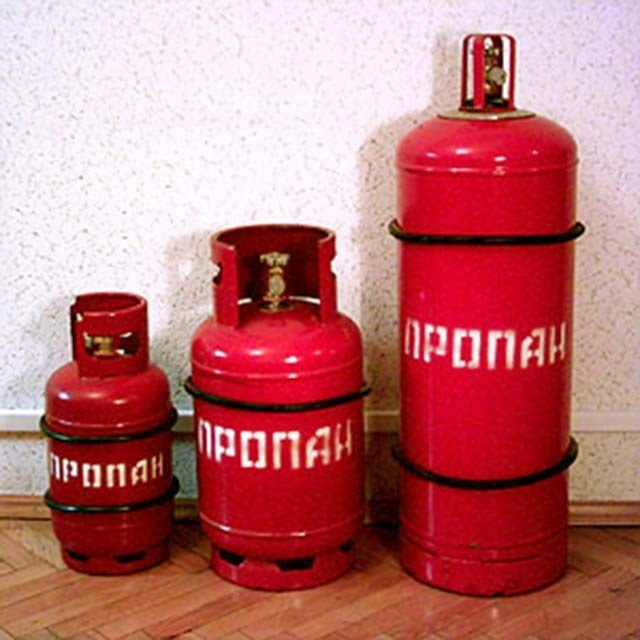Installation of gas equipment
For the normal functioning of the gas stove, you need to choose the right place for the installation of the container. Better if it will be on the street, but keep in mind that at low temperatures, the gas evaporates very bad, with the result that the stove will not work fully. For exterior installations, the cylinder must be placed no closer than 1 meter from the door and 0.2 m from the Windows. If it is near the cellar or basement, you must maintain a distance of 3 meters. The location of the gas cylinder must be protected from overheating (it is impossible to prevent exposure to temperatures above +45C), so it is recommended to set the container in a special (preferably metal) Cabinet.
If the container is installed outside the gas installation must be made by metal pipe, located not less than 2.2 m from the ground. The cylinder and gas stove connected with the chimney by means of a gas hose (yellow or color of the same hue). Distance from the gas tank to the plate is no closer than 0.5 m, and the volume of the room where the stove is installed must be at least 8 cubic meters.
Connection
Gas stoves are designed for a certain pressure – 0,3 MPa. Because the cylinder pressure can be different to balance it is used the reducer. It is connected between the container and the metal pipe. When connecting pay attention to the special gaskets and the threads of the reducer – she left. Buying a gas stove, ask designed whether it is on bottled gas. It's all in the diameter of the nozzles; for bottled gas it needs to be 0,89-0,93 mm. However, a number of manufacturers complement their products with adapter that allows to connect the stove to the trunk, and balloon gas.
Connected reducer, hoses must be easily accessible. After hardware installation is completed, check the tightness of the connections. For this, all connection points over soap suds. While removing the valve of a gas cylinder visually inspect the entire "route"; a loose connection can be seen by leaving soap bubbles. There are restrictions on the installation of gas cylinders and stoves for basements, cellars, and other confined spaces below ground. This is due to the special properties of propane-butane mixture, which is heavier than air, accumulate in unventilated place, which could lead to poisoning or explosion.
